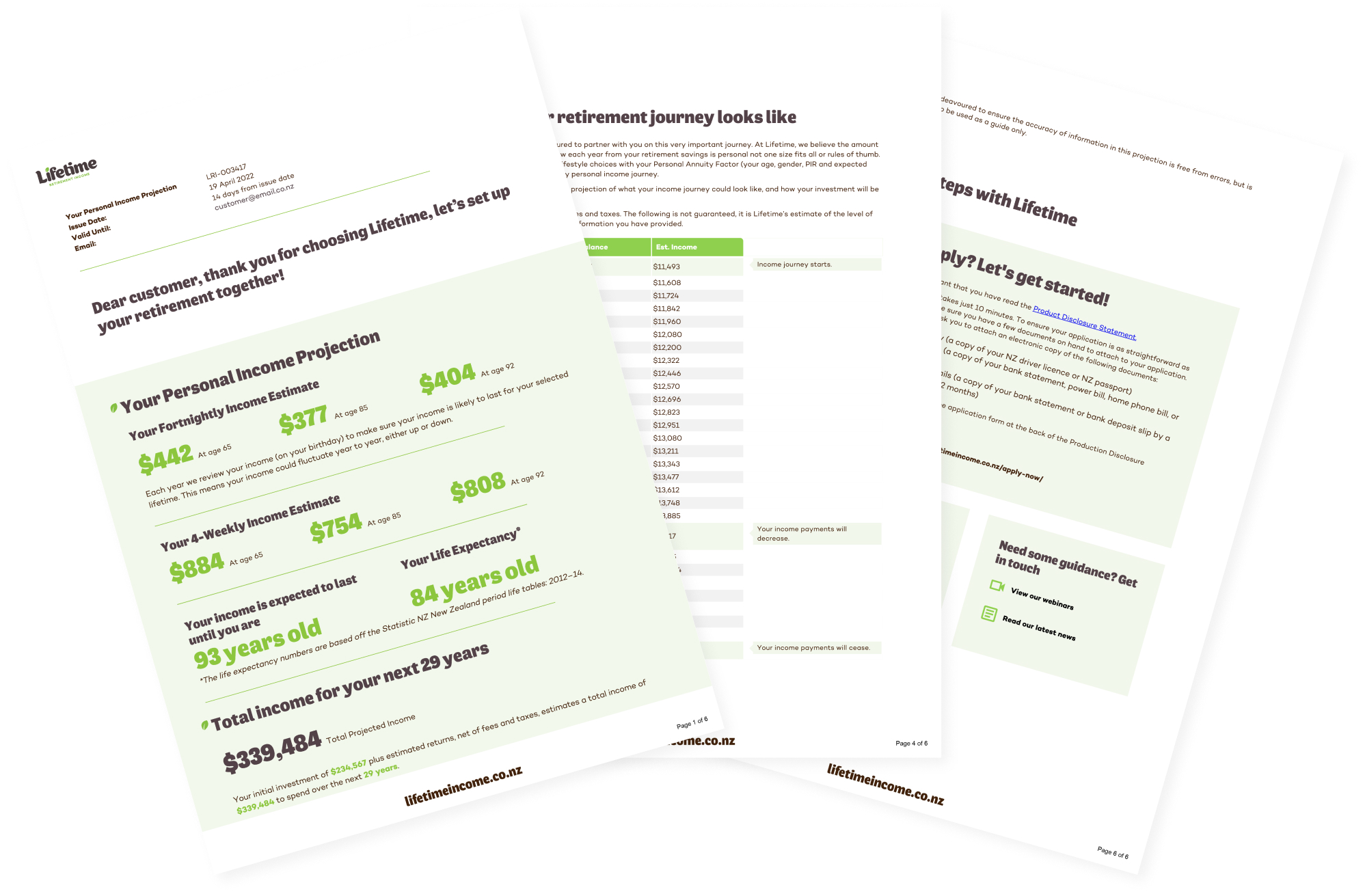Retirement Life
6 August 2025
Future-proof your life with an Enduring Power of Attorney
When we think about retirement planning, our minds tend to jump straight to the financial side of things, like budgeting, capital drawdown, insurance, and maybe even making a will. But there’s another essential piece of the puzzle that often gets overlooked: what happens if you can no longer make decisions for yourself?
While it’s not something anyone likes to dwell on, accidents, illnesses or cognitive decline like dementia can happen at any stage of life. And when they do, having an Enduring Power of Attorney (EPA) in place can make all the difference.
What is an EPA and why does it matter?
An Enduring Power of Attorney is a legal document that lets you choose someone you trust to make decisions on your behalf, in case you're ever unable to make them yourself. This could be temporary, following a stroke or serious accident, say, or more long-term if you’re living with dementia.
Vanessa Dudley, General Manager – Retail at Public Trust puts it simply: “EPAs let you choose [while you’re still capable] and give you peace of mind.”
Without an EPA, no one has automatic authority to manage your affairs. Not even your spouse or children. If something happens and you haven’t set up an EPA, your family would have to apply to the Family Court to be appointed as your decision-maker, which can be costly, stressful and time-consuming.
Power of Attorney vs Enduring Power of Attorney
You may have heard of a Power of Attorney (POA) and wondered how it’s different from an EPA. In short, a regular POA is only valid while you're mentally capable. Once you lose capacity, it becomes void.
An EPA, however, endures. It stays in effect even if you become mentally incapable, which makes it a critical safety net.
Calculate what you could draw in retirement.

Two types of EPA
There are two types of EPAs in New Zealand and, ideally, you should have both:
1. EPA for property
This allows someone you trust (or a professional trustee) to manage your financial affairs. That includes everything from paying bills, managing bank accounts and selling your house, to handling investments or overseeing a business. You can decide when this EPA kicks in. It could be immediately, at a certain time, or only if you’re declared mentally incapable.
2. EPA for personal care and welfare
This covers decisions about your health, wellbeing, and living arrangements, including where you live, the care you receive, and who looks after you. Unlike the property EPA, this one only comes into effect if a qualified health practitioner deems you mentally incapable. And importantly, you can only appoint one person to this role (though you can name a backup).
Choosing the right person (or people)
Your attorney (the person you give authority to) holds a lot of responsibility, so choosing the right one is crucial.
Ask yourself:
- Do they make sound decisions?
- Do they communicate well and listen to others?
- Do they have your best interests at heart?
- Do they have time to carry out the role properly?
You can appoint different people for each EPA, which often makes sense. The skills required to manage money might be quite different from those needed to make decisions about your healthcare and daily wellbeing.

Things to think about
When setting up your EPAs, a bit of forethought can help avoid problems down the track and may even reduce your legal costs.
For your Property EPA, consider:
- How many attorneys you want. You can have just one, or several.
- Should they act together (jointly), independently (separately), or both?
- Do you want your EPA to be activated now, or only if you lose capacity?
- Will your attorney need to consult with anyone before making decisions?
For your Personal Care and Welfare EPA, think about:
- Where you’d like to live if you need care?
- Whether you want to stay close to family or be able to take your pet with you?
- What kind of medical treatment you do or don’t want?
- Who else your attorney should consult with (e.g., family members or healthcare professionals)?
You can also add specific instructions or restrictions to guide your attorneys. This could be anything from requesting that your cat stays with you wherever possible, or that you'd prefer to stay in your own home as long as it's safe and feasible.
What happens if things change?
You’re not locked into your decision forever. As long as you're still mentally capable, you can update or cancel your EPAs at any time. It’s a good idea to review them every few years, or after big life events like a relationship change, the death of an attorney, or a significant health diagnosis.
Getting started
Setting up an EPA is a legal process, so you’ll need to involve a lawyer, qualified legal executive or a trustee organisation like Public Trust. But it doesn’t have to be daunting.
Start by thinking carefully about who you trust, what kind of decisions they’d be making, and what guidance you’d like to give them.
And remember, the earlier you get your EPAs in place, the better. As Dudley says: “Getting EPAs sorted could be one of the most important decisions you make.”
You can find EPA forms and further information on the Ministry of Justice website (Click to View) or the Office for Seniors (Click to View).

Project your retirement income.
Invest with Lifetime for a retirement income managed for living.
